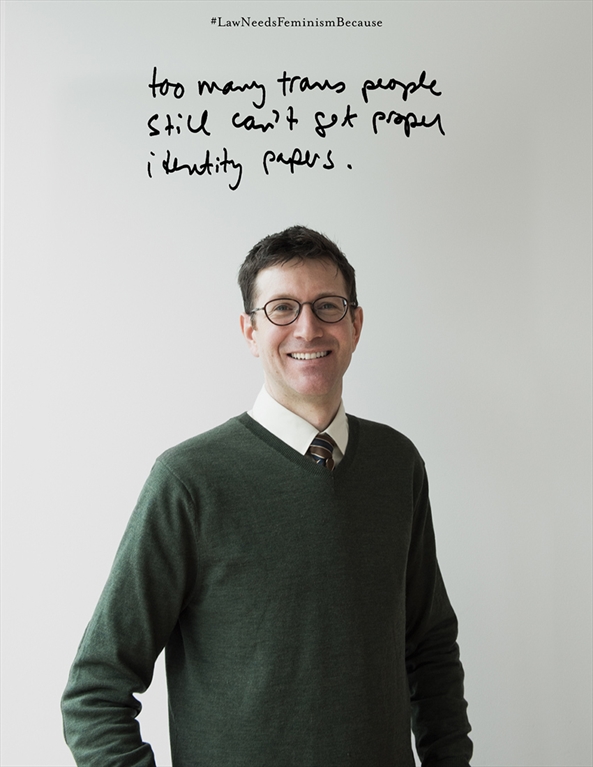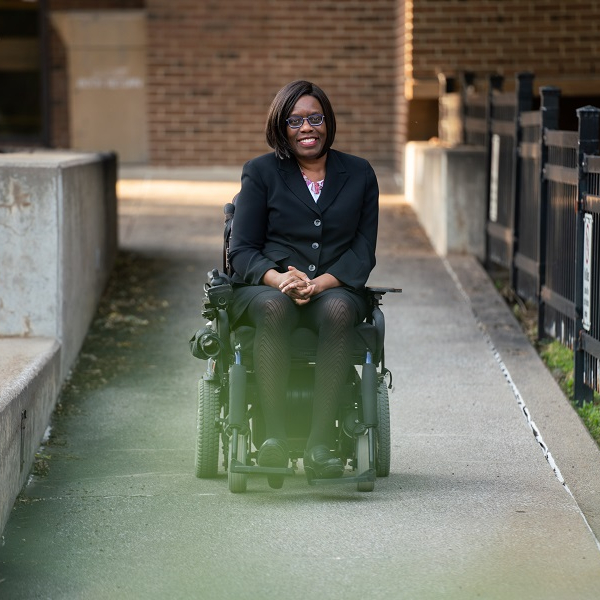On a quiet Saturday morning in early March, 208 young lawyers and lawyers-to-be gathered at the University of Ottawa to ponder the future of their profession.
How can inequality be addressed in a system so slow and reluctant to change? How do we democratize access to justice for people of all genders, sexualities, races, religions and socio-economic classes? How do we become allies to marginalized people within the law profession?
Those questions are the force behind Law Needs Feminism Because (LNFB), a student-led movement born at McGill that has spread to law schools across Canada since starting in 2016.
The wheels began turning the year prior, when law students Rachel Kohut and Vanita Sachdeva, MSc’14, inherited a photo campaign paid for by the Feminist Collective of McGill Law.
As Kohut tells it, the collective had done a first photo campaign the previous year, and had earmarked another $250 to do a second campaign in 2015–2016 academic year. However, the money was nearly axed from the budget when no one stepped forward to claim ownership.
Kohut and Sachdeva spoke up in its defense, offering to take the project on. Ultimately, the two students gathered 33 portraits of their McGill classmates. Each photo subject wrote a note that answered the hashtag: #LawNeedsFeminismBecause.
“I pushed the campaign at 4 pm on a Friday afternoon, which I have learned is perhaps the worst time to launch anything,” Kohut says. The campaign went viral anyway, and by Monday afternoon, she was being interviewed on the radio by CBC Montreal’s Homerun.
The campaign could have died a peaceful death after falling out of the fast-moving news cycle. The reaction, however, had lit a fuse that could not be easily extinguished.

McGill law professors to be featured in
Law Needs Feminism Because portraits
“We couldn’t keep up with all the messages and inquiries in our in-boxes. If that doesn’t speak to the moment we find ourselves in, I don’t know what does. There are stories to tell and voices to be amplified, and LNFB provides a space for the legal community to do exactly that,” says Kohut.
So they started a movement, and it spread like wildfire. In less than two years, more than 1,000 #LawNeedsFeminismBecause portraits have been taken featuring students and faculty from all 23 law schools across Canada. The group has held two national forums — the first at McGill and the second at University of Ottawa — and has formed a national executive (eight of the 22 members are current or former McGill law students).
Zaynab Al-Waadh currently co-leads the University of Ottawa’s chapter with Stephanie Tadeo, both of whom are graduating this year. Al-Waadh was also the main organizer of the second national forum, held on the U of O campus in March.
“Our profession is quite conservative, as in, slow to embrace change,” says Al-Waadh.
A full day of speakers, led by keynote Angela Chaisson — a high-profile Toronto lawyer known for her progressive legal work that has championed women and LGBTQ people — helped just over 200 students explore how to integrate their progressive values into their professional work. Topics included online harassment, tips for job-seekers, inequalities in access to justice and the role that legal tech could play in helping to democratize the law.
As Al-Waadh notes, intersectionality — i.e., where gender crosses over into sexual orientation, class, race, ability and other identities and systems — has emerged as a focal point for LNFB as it moves forward. She’s hopeful that future LNFB leaders, both local and national, seek out ways to act, whether by participating in letter-writing campaigns, organizing solidarity events or advocating for sexual-assault training on campuses.
“Sometimes we get really caught up in our academic bubble that we end up discussing intersectional feminist principles in theory,” she observes. “We forget that there are meaningful ways we can take theory into action and practice.”


